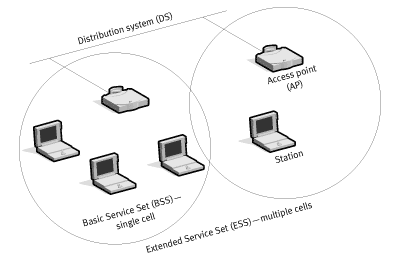Auto-scaling in OpenStack (1)
在OpenStack的架構中, Scaling是由heat project完成的,
在heat project中, 每一個由虛擬機組成的群組稱為stack,
而stack中的創建甚至動態擴充機制,
則有賴於HOT (Heat Orchestration Template) template的設定,
我們先來看一個最簡單的template範例:
在一個HOT template中,
首先要定義的是template的版本 (heat_template_version),
這版本所對應的日期, 並不能隨便填入,
不同日期對應到不同的heat release,
詳細版本號和對應功能的改變請參考:
http://docs.openstack.org/developer/heat/template_guide/hot_spec.html#hot-spec-template-version
在一個HOT template中, description是用來作為使用者註解的,
接著, 在resource中,
我們定義了my_instance, 作為虛擬機的樣板,
其中, 關於這台虛擬機, 我們需要以下的敘述:
key_name, image 和 flavor,
其中, key_name是用來登入的key,
image, 是用以開啟虛擬機的映像檔, 其名稱必須與glance中的名稱相同,
flavor則是開啟虛擬機的資源設定, 包括CPU, 記憶體, 硬碟等參數,
必須和nova中定義一致,
完成上述介紹後, 我們可用parameter, 和get_param的方式讓template更有架構,
parameters是指預先定義的參數, 使用以下的形式定義:
param_name:
type: string
label: Label of parameter
description:
default: default setting
我們可以把上述template改成以下形式:
參考資料:
http://docs.openstack.org/developer/heat/template_guide/hello_world.html
在heat project中, 每一個由虛擬機組成的群組稱為stack,
而stack中的創建甚至動態擴充機制,
則有賴於HOT (Heat Orchestration Template) template的設定,
我們先來看一個最簡單的template範例:
heat_template_version: 2015-04-30
description: Simple template to deploy a single compute instance
resources:
my_instance:
type: OS::Nova::Server
properties:
key_name: my_key
image: ubuntu-trusty-x86_64
flavor: m1.small
在一個HOT template中,
首先要定義的是template的版本 (heat_template_version),
這版本所對應的日期, 並不能隨便填入,
不同日期對應到不同的heat release,
詳細版本號和對應功能的改變請參考:
http://docs.openstack.org/developer/heat/template_guide/hot_spec.html#hot-spec-template-version
在一個HOT template中, description是用來作為使用者註解的,
接著, 在resource中,
我們定義了my_instance, 作為虛擬機的樣板,
其中, 關於這台虛擬機, 我們需要以下的敘述:
key_name, image 和 flavor,
其中, key_name是用來登入的key,
image, 是用以開啟虛擬機的映像檔, 其名稱必須與glance中的名稱相同,
flavor則是開啟虛擬機的資源設定, 包括CPU, 記憶體, 硬碟等參數,
必須和nova中定義一致,
完成上述介紹後, 我們可用parameter, 和get_param的方式讓template更有架構,
parameters是指預先定義的參數, 使用以下的形式定義:
param_name:
type: string
label: Label of parameter
description:
default: default setting
我們可以把上述template改成以下形式:
heat_template_version: 2015-04-30
description: Simple template to deploy a single compute instance
parameters:
key_name:
type: string
label: Key Name
description: Name of key-pair to be used for compute instance
default: my_key
image_id:
type: string
label: Image ID
description: Image to be used for compute instance
default: ubuntu-trusty-x86_64
flavor:
type: string
label: Instance Type
description: Type of instance (flavor) to be used
default: m1.small
resources:
my_instance:
type: OS::Nova::Server
properties:
key_name: { get_param: key_name }
image: { get_param: image_id }
flavor: { get_param: flavor }
參考資料:
http://docs.openstack.org/developer/heat/template_guide/hello_world.html



留言
張貼留言